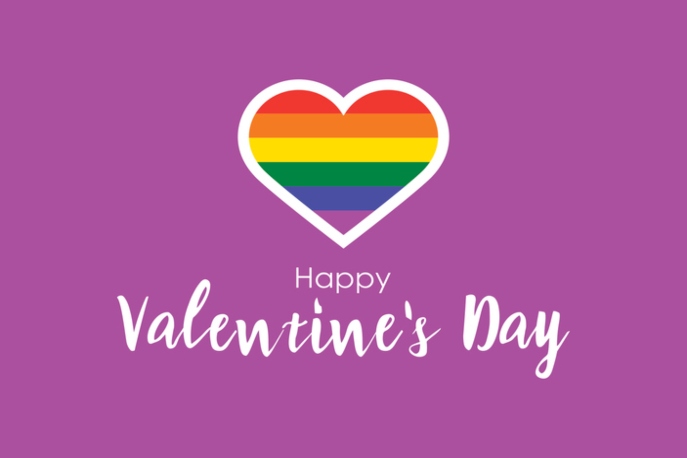Photo Credit: Betka82
Valentine’s Day is one of the most commercial holidays of the year. In the build up to the holiday, stores, websites, and other corners of our daily life are dominated by pink hearts and love songs. For straight couples, all of this cultural pressure to spend and have a romantic Valentine’s Day can be intense (studies have even found a spike in breakups around the holiday). Yet, for people in the LGBTQ+ community, Valentine’s Day may elicit some different anxieties.
Heteronormativity is the idea that straight relationships, or heterosexuality, are both the norm and the most preferable form of romantic love. On Valentine’s Day, nearly everything defaults to heteronormativity. Most Valentine’s Day commercials and gifts are designed with straight couples in mind. Valentine’s Day media largely depicts straight couples. Even for straight couples, the messaging we receive largely depicts stereotypical gender roles of how men and woman are supposed to act to prove their love. For people in the LGBTQ+ community, this becomes more complicated.
In same-sex relationships, living in a heteronormative society, both members of the couple are often inundated with gendered questions, assumptions, and stereotypes such as “Who is the man/woman in this relationship?” These limiting scripts and roles can be isolating for anyone whose identity and expression doesn’t live up to the gendered expectations equated with love. This becomes even more complicated for nonbinary people, transgender people, asexual people, and people who are polyamorous, among others.
Additionally, Valentine’s Day may be a time where LGBTQ+ couples feel a heightened level of visibility. At a restaurant or mainstream Valentine’s Day functions, LGBTQ+ couples are often a rarity and as such may encounter microaggressions or fear a lack of social acceptance or even safety. This is something straight couples rarely have to consider.
How does this relate to the workplace? Valentine’s Day may not be the most acknowledged holiday in your organization, but there’s likely many ways heteronormativity seeps its way into dynamics year-round. Have you considered how you can convey to your colleagues, and to your audience, that your workplace is inclusive of all people and values love of all kinds? Below we have some recommendations for how you can do just that.
Recommendations:
-Do not make assumptions about your colleague’s gender identity, sexuality, or personal life.
-Normalize gender-neutral language like “partner” or “spouse” to describe one’s own intimate partner. This way, your colleagues may not feel any pressure to come out if they would like to reciprocate and discuss their home life in a way they are comfortable with.
-Never pressure coworkers to share about their personal life, and don’t assume everyone feels comfortable talking about their relationships at work. Everyone has a right to their privacy.
-Review your workplace policies and training materials to see if they may implicitly reinforce heteronormative expectations and gender stereotypes. How and where in your organization’s internal and HR materials can you ensure there is broad representation of diversity?
-Think critically about how gender stereotypes may be shaping your workplace culture – socially and when it comes to division of labor at work and at home. Don’t default to only asking male coworkers for a recap of last night’s game, or only asking female colleagues how their children are doing. Studies have found women are asked more often and assigned non-promotable tasks (like taking meeting notes, scheduling an event, or joining a committee) which creates barriers for advancement and contributes to inequity.
Valentine’s Day is an opportunity to celebrate love. This year, let’s spread the message that all types of love are valid and worthy of celebration!
RALIANCE is a trusted adviser for organizations committed to building cultures that are safe, equitable, and respectful. RALIANCE offers unparalleled expertise in serving survivors of sexual harassment, misconduct, and abuse which drives our mission to help organizations across sectors create inclusive environments for all. For more information, please visit www.RALIANCE.org.

